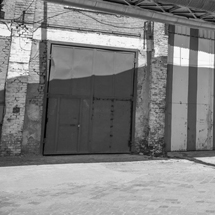Inventory and evaluation by Tobias Gogoll from the BASIS project in Hamburg

Prostitution is legal in Germany and has no longer been immoral since the Prostitution Act of 2002. This would also mean that sex workers have been able to do their job without any major obstacles since then and that prostitution customers can buy their services. But is this really the case?
The fact is that the vast majority of large cities in Germany impose so-called restricted areas in which prostitution is prohibited. Berlin is a prominent counter-example here. Conversely, this also means that sex 4 cash is permitted in certain places, streets and squares at certain times. This is referred to as tolerance zones. However, the legislator can also prohibit certain forms of prostitution. For example, there is a ban on soliciting on the street - in a bar, on the other hand, it is "O.K.". This situation has its legal basis in a provision of the Introductory Act to the Criminal Code, Article 297 EGStGB "Prohibition of prostitution". The organisations of sex workers as well as advice centres for prostitutes are calling for this special law to be abolished. Either prostitution is a legal gainful activity - in its entirety - or it remains criminalised in the interests of "public decency" and thus an outdated understanding of morality.
The legislator itself exacerbates the situation
Of course, the cities handle these bans differently. And the restricted areas are not enforced with the same rigour everywhere. In addition, women and transgender sex workers and their clients are much more likely to be subject to police surveillance than hustlers and male escorts. The fact that men want to buy sex from men is still hardly taken into consideration by most law enforcement officers. Prostitution is still something feminine. Men, both providers and customers, are largely overlooked. The bans are, of course, intended to be unpleasant and ultimately also serve the purpose of cleaning up gentrified inner-city areas: social hygiene for the benefit of new residents.

The increased pressure on sex workers and customers has consequences. Instead of being able to show themselves openly, they start playing hide-and-seek from the police. This makes sex workers and clients more susceptible to criminal offences. Forcing sex workers into remote commercial areas, for example, opens the door to coercion and violence. The fear of being discovered is unfavourable for communication about sex and the business. The question arises as to whether the repressive measures might also cause one or two safer sex messages to be forgotten.
The situation of those who choose the public space as their place of work is particularly difficult. In public perception, they often become "poverty prostitutes" or - especially in the case of migrants - victims of so-called "forced prostitution". This is a spiral, as this form of prostitution serves as justification for legal measures such as restricted areas. However, the legal restrictions in turn are the cause of poverty and coercion, as they have a drastically negative impact on the working conditions of sex workers. Hustlers are not necessarily well-liked in the gay scene either. Their presence draws too much attention to the dark side of our beautiful new city centres.









